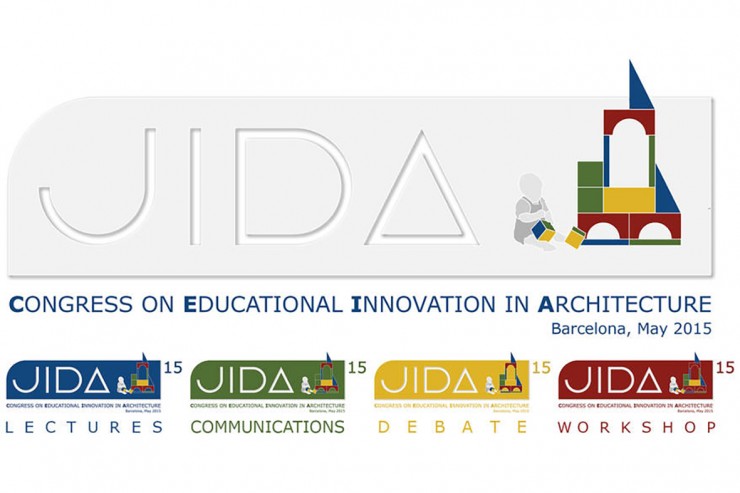
El próximo jueves 28 de mayo presentaré el artículo en coautoría con Antti Ahlava «Cruzando disciplinas desde la Arquitectura. El caso de Aalto ARTS«, en el Congreso Internacional sobre Innovación Docente JIDA’15 (III Jornadas de Innovación Docente en Arquitectura), que se celebrará en la Escuela Técnica Superior de Arquitectura de Barcelona (ETSAB) del 25 al 29 de mayo. La comunicación se encuadra en la jornada del congreso relativa a la relación entre la práctica profesional y la docencia universitaria.

The Group for Educational Innovation and Logistics in Architecture (GILDA) organizes in collaboration with the Institute of Educational Sciences (ICE-UPC), the R+D competitive Project of the Ministry of Economy and Competitiveness «E-learning 3.0 in the teaching of architecture», and within the Erasmus project+2014 «Confronting Wicked Problems: Adapting Architectural Education to the New Situation in Europe», the third workshop for Educational Innovation in Architecture (JIDA’15) which will take place on the 25, 26, 27, 28 and 29 of May 2015 at the ETS of Architecture of Barcelona.
The JIDA workshop has as its aim the divulgation and exchange of experiences on educational innovation in the context of graduate and postgraduate studies in the fields of architecture and urbanism. The purpose of the JIDA workshop is to improve the quality of teaching and learning in higher education taking into account the uniqueness of these fields of knowledge.
In particular, this third edition is based on the debate between two important educational environments: the academic and the professional one. The link between learning methodologies and the consolidation process of the knowledge on the discipline that the student is taking in throughout their studies must be contrasted with the professional practice of our architects, the job market and the socio-economic context in which our society is involved in. That is why the purpose of this workshop aims to focus not only on the discussion of educational methodologies, but especially in its effectiveness to ensure a good traineeship which will allow the future architect to adequately address the challenges posed by society.
In this discourse, and in front of these two realities, the academic and the professional, the elaboration of an appropriate portfolio or curriculum seems to be fundamental, understanding it as a key element that should link both areas. That is the reason why this congress will dedicate a significant part of its attention to this document.
Puedes consultar y descargar el programa completo del congreso aquí.
